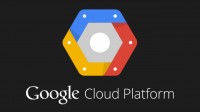According to Google Cloud chief executive Thomas Kurian, the coronavirus pandemic has had an impact on the development of new cloud features. “Every week, there’s a new set of dimensions, and we have to adapt, keep people positive, and focus through it,” he said. A new security product that encrypts data while it’s being processed, for example, is aimed at luring businesses in highly regulated industries to adopt cloud services. Another cloud-computing product is Assured Workloads for Government, a new way to secure public sector deals.
The Wall Street Journal reports that Kurian described why his division developed the new security product. “We wanted people comfortable [in knowing] they can move to the cloud and don’t have to worry about the security of [their] data,” he said. In fact, “cloud-service providers, which sell computing capacity on an as-needed basis, emerged as among the few corporate winners in the early days of the pandemic, owing to their ability to support remote work, among other capabilities.”

For that reason, Google Cloud doubled down on developing and releasing new features for existing products that could be helpful in the pandemic. Google Meet, for example, now “automatically adjusts a user’s video to account for lighting variations … and automatically filters out background noises such as keystrokes and dog barks.”
Kurian also determined that a computer vision-enabled tool built for manufacturers to automatically inspect products for quality could be “useful during the pandemic” since it “lets manufacturers circumvent manual inspections, which often require workers to be physically close together and more susceptible to contracting the virus.” Kurian revealed that, early on, he “focused on preparing the company for extended remote work scenarios,” which were first tested in February so that “employees weren’t transitioning to remote work while customers needed help overcoming their own information technology challenges.”
In the first months of the pandemic, Google Cloud staff “mobilized to help customers provision cloud services, plan for cloud computing capacity and monitor for IT system outages … [helping] customers in online videogaming, government services, education and retail.”
Gartner reports that, as of 2018, Google Cloud’s “worldwide market share in the cloud was 4 percent,” compared to Amazon Web Services at about 48 percent, Microsoft’s 15.5 percent and Alibaba’s 7.7 percent.
Bloomberg reports that Google’s Assured Workloads for Government “is designed to meet government security and compliance requirements with mostly software rather than a specialized data center … [as] U.S. agencies, such as the Defense Department, are shifting billions of dollars in information technology spending to the cloud.” Until now, Google “lacked key credentials and sales operations, and faced resistance from some of its employees … [but] is now intent on competing.”
Google Cloud also brought on executives with “experience selling to the public sector.” Jeanette Manfra, who worked for the Department of Homeland Security, is now Google Cloud’s director of global security and compliance. “Our approach is to make the entire commercial cloud a secure and protected one that works for the public sector,” she said. Google is releasing the new service in the U.S. this fall.

No Comments Yet
You can be the first to comment!
Sorry, comments for this entry are closed at this time.